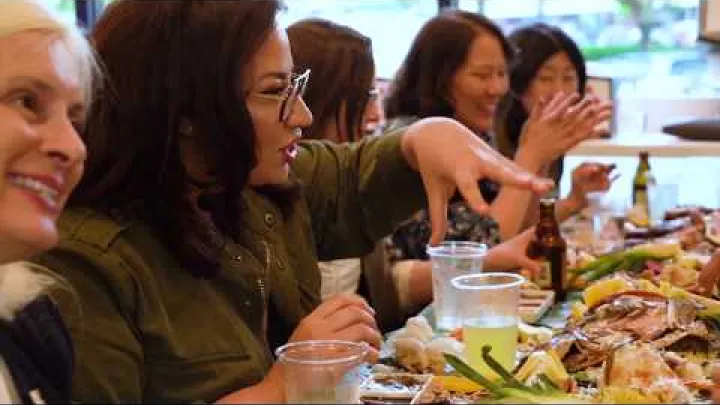Social Norms in the Philippines – Useful Cultural Manners and Ways to Enjoy Local Life
When exploring social norms in the Philippines, you’ll quickly discover a culture defined by warmth, respect, and a strong sense of community. Whether you’re a first-time visitor or returning to reconnect with loved ones, understanding local customs will help you navigate everyday life with confidence. Keep in mind that not all of these traditions apply to every Filipino or region, but they provide insight into the nation’s rich and diverse heritage.
Hospitality in Filipino Culture
Filipino hospitality is legendary. From modest family homes to bustling urban neighborhoods, visitors are often welcomed with a smile, offered food, and invited to share in community celebrations. Rooted in cultural values like pakikisama (harmony) and bayanihan (communal unity), this tradition fosters an environment where everyone feels looked after.
The Heartwarming Filipino Welcome
Whether you’re in a modern city or rural village, Filipinos will go out of their way to ensure your comfort. Even if there’s a language barrier, locals often engage in small talk or use polite gestures to connect. Refusing offered food or drinks can be interpreted as impolite, so graciously accepting these tokens of hospitality is recommended.
Acts of Kindness from Strangers
Small, considerate gestures are woven into daily life. Offering a seat to elders on public transport, helping with heavy bags, or giving directions are common examples. Such actions not only reflect kindness but also uphold a communal mindset that values helping one another.
Respect for Elders: A Key Filipino Tradition
Filipinos hold elders in high esteem, demonstrating reverence through linguistic and cultural practices. One notable custom is “Mano Po”, where younger individuals gently place an elder’s hand on their forehead as a sign of respect. This gesture underscores the importance of family bonds and communal harmony.
The Wisdom of Age
Within Filipino families, elders are seen as reservoirs of wisdom. Their life experiences guide younger generations, instilling shared values of modesty, generosity, and mutual respect. In many households, extended family members live close together, reinforcing these intergenerational bonds.
Practical Respect: Senior Discounts
Supporting the older population extends beyond family life. Businesses commonly offer senior citizen discounts on essentials and services, encouraging elders to remain active and integrated within their communities.
Family-Centric Lifestyles
Filipino families are typically close-knit, often including not just parents and children but also grandparents, aunts, uncles, and cousins under one roof. The concept of “extended family” is very strong. In many cases, personal possessions and spaces are shared. For newcomers, this open-sharing dynamic can feel surprisingly intimate—but it highlights how family unity shapes everyday life in the Philippines.
“Filipino Time” in Everyday Life
Outside of formal settings like business meetings or doctor’s appointments, Filipinos often have a relaxed approach to punctuality. It’s common for people to arrive an hour or even two hours after a scheduled start—humorously referred to as “Filipino time.” While this can be surprising if you’re used to strict timetables, understanding this cultural rhythm helps minimize frustration and fosters positive social interactions.
Celebrations and Social Gatherings
Filipinos love social gatherings—from lively festivals and birthdays to impromptu karaoke nights. These events embody the communal spirit and highlight a unique approach to time. Despite the casual pace, formal engagements (like business appointments) usually follow a punctual schedule.
Karaoke: The National Pastime
Karaoke is more than just a hobby; it’s a national passion. Friends and families gather around the microphone, often transforming a simple evening into a memorable celebration. Participation is encouraged—even if you’re not the best singer, it’s the shared experience that counts.
Religious Observances and Respect
The Philippines is predominantly Catholic, and religious customs weave through daily life. Most churches and sacred sites expect visitors to dress modestly and behave respectfully. During religious festivals, communities come alive with processions, music, and feasting. Over 90% of Filipinos identify as Catholic, giving rise to numerous nationwide festivals and feast days.
Respecting Catholic Traditions
Observing local customs—such as wearing appropriate attire in churches—allows you to fully appreciate the depth of these traditions while showing deference to the community. Whether you attend a Mass or watch a colorful fiesta, you’ll witness how faith and daily life blend seamlessly in Filipino society.
Eating with Hands: A Cherished Culinary Tradition
Filipinos commonly enjoy meals by eating with their hands, particularly during family feasts or when savoring dishes like lechon (roast pig). It’s also common to see a spoon-and-fork combination rather than the Western knife-and-fork. If you prefer a fork and knife, your hosts will often accommodate you, reflecting the hospitality ingrained in Filipino culture.
The Cultural Significance
Traced back to pre-colonial times, eating with hands reflects the country’s heritage. Often served on banana leaves, meals highlight the community’s inclusive nature and the belief that sharing food fosters connection. If you’re offered local delicacies, try them—it’s part of embracing Filipino culture. Communal dining is quite common; people often leave extra servings for those who arrive late.
Social Etiquette and Small Talk
Socializing in the Philippines typically involves informal conversation on light-hearted topics, from favorite dishes to the local weather. While modesty is valued, open communication about one’s family or personal experiences is quite common, underscoring the inclusive nature of Filipino society.
Popular Topics
When greeting someone, a friendly “Kamusta?” (“How are you?”) goes a long way. Complimenting a host’s home or remarking on the deliciousness of a shared meal is always well-received. Showing interest in Filipino customs, local festivals, or regional delicacies fosters mutual respect and can lead to engaging, memorable conversations.
Visiting Etiquette and Tips
- Remove Shoes Indoors: Many Filipino households expect guests to take off their shoes; you may be offered slippers to wear inside. This practice helps keep floors clean and shows respect.
- Mind Your Language: Cursing or using blasphemy can be seen as disrespectful and may cause someone to “lose face.”
- Avoid the Word “Hostess”: Referring to the woman of the house as “hostess” can carry an offensive meaning in the Philippines. Instead, use titles like “Ma’am” or simply her name with a respectful tone.
- Try Refreshments Offered: Turning down offered food or drinks can be seen as impolite. Filipinos often bring out their best crockery to honor guests.
- Leave the Last Serving: Out of courtesy, Filipinos are often reluctant to take the last portion of shared food, especially when a visitor is present.
Dining Etiquette
- Meals with Rice: Nearly all main meals include rice. A meal without rice is commonly considered a snack.
- Spoon and Fork, or Hands: Many Filipinos prefer using a spoon and fork, while others enjoy eating with their hands. They’ll happily provide utensils for guests if needed.
- Avoid Leaning on Arms: It’s considered rude to rest your elbows or lean excessively on the table while eating.
- Wait for All Dishes: Filipinos may wait until all dishes are on the table before they start eating, allowing everyone to share the complete meal together.
- Late Comers: Food is often left out for potential late arrivals or anyone who gets hungry later. This practice highlights a sense of communal care.
Gift-Giving Practices
- Presentation Matters: Filipinos take care in wrapping gifts beautifully or choosing thoughtful packaging. It’s a sign of respect and appreciation.
- Sentimental Value: Gifts often hold emotional or practical significance. It’s not unusual for Filipinos to spend considerable time selecting something meaningful.
- When to Open Gifts: Gifts are generally not opened right away. A recipient will often thank the giver and set the gift aside to open later in private.
Final Thoughts: Embrace Filipino Culture
Exploring the social norms of the Philippines goes beyond sightseeing—it’s an invitation to connect with a warm, family-oriented society that holds respect, hospitality, and unity in high regard. By understanding these customs—from greeting elders with “Mano Po” to engaging in lively karaoke sessions—you’ll deepen your experience, build genuine relationships, and create memories that last long after your trip ends. Embrace these unique traditions, and you’ll discover why the Philippines remains a place of heartfelt welcomes and enduring cultural richness.
Your Nearby Location
Your Favorite
Post content
All posting is Free of charge and registration is Not required.
















